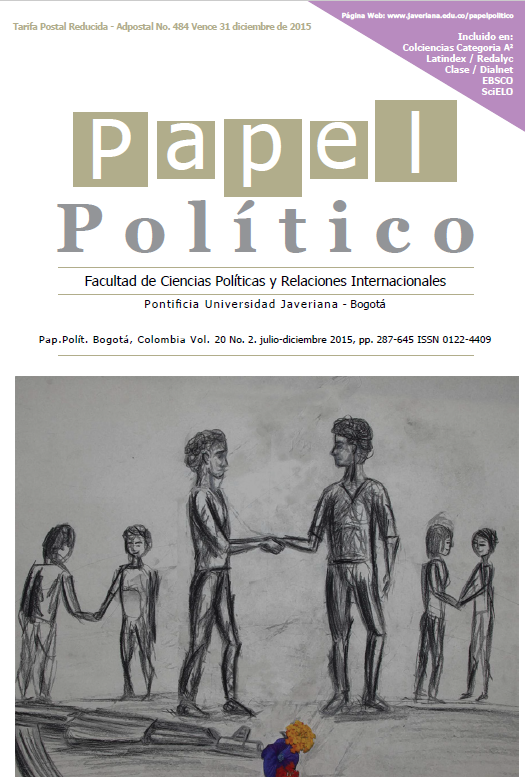Abstract
The present research examined the question about whether the Colombian democracy is or not to be consolidated from the attitudinal point of view. This article examines different attitudes toward democracy in Colombia during the last fifteen years. In order to this, we present three concepts: legitimacy, political discontent and political disaffection and we selected some indicators to differentiate these three dimensions of attitudinal consolidation. These dimensions raise a number of distinctions that literature does not usually consider. We analyze the evolution across a long period of time since the constitutional moment in 1991. Finally we propose a methodology that allows to specify the degree of interaction between these attitudes and their influence or not over the legitimacy of the Colombian political system.
This journal is registered under a Creative Commons Attribution 4.0 International Public License. Thus, this work may be reproduced, distributed, and publicly shared in digital format, as long as the names of the authors and Pontificia Universidad Javeriana are acknowledged. Others are allowed to quote, adapt, transform, auto-archive, republish, and create based on this material, for any purpose (even commercial ones), provided the authorship is duly acknowledged, a link to the original work is provided, and it is specified if changes have been made. Pontificia Universidad Javeriana does not hold the rights of published works and the authors are solely responsible for the contents of their works; they keep the moral, intellectual, privacy, and publicity rights.
Approving the intervention of the work (review, copy-editing, translation, layout) and the following outreach, are granted through an use license and not through an assignment of rights. This means the journal and Pontificia Universidad Javeriana cannot be held responsible for any ethical malpractice by the authors. As a consequence of the protection granted by the use license, the journal is not required to publish recantations or modify information already published, unless the errata stems from the editorial management process. Publishing contents in this journal does not generate royalties for contributors.


